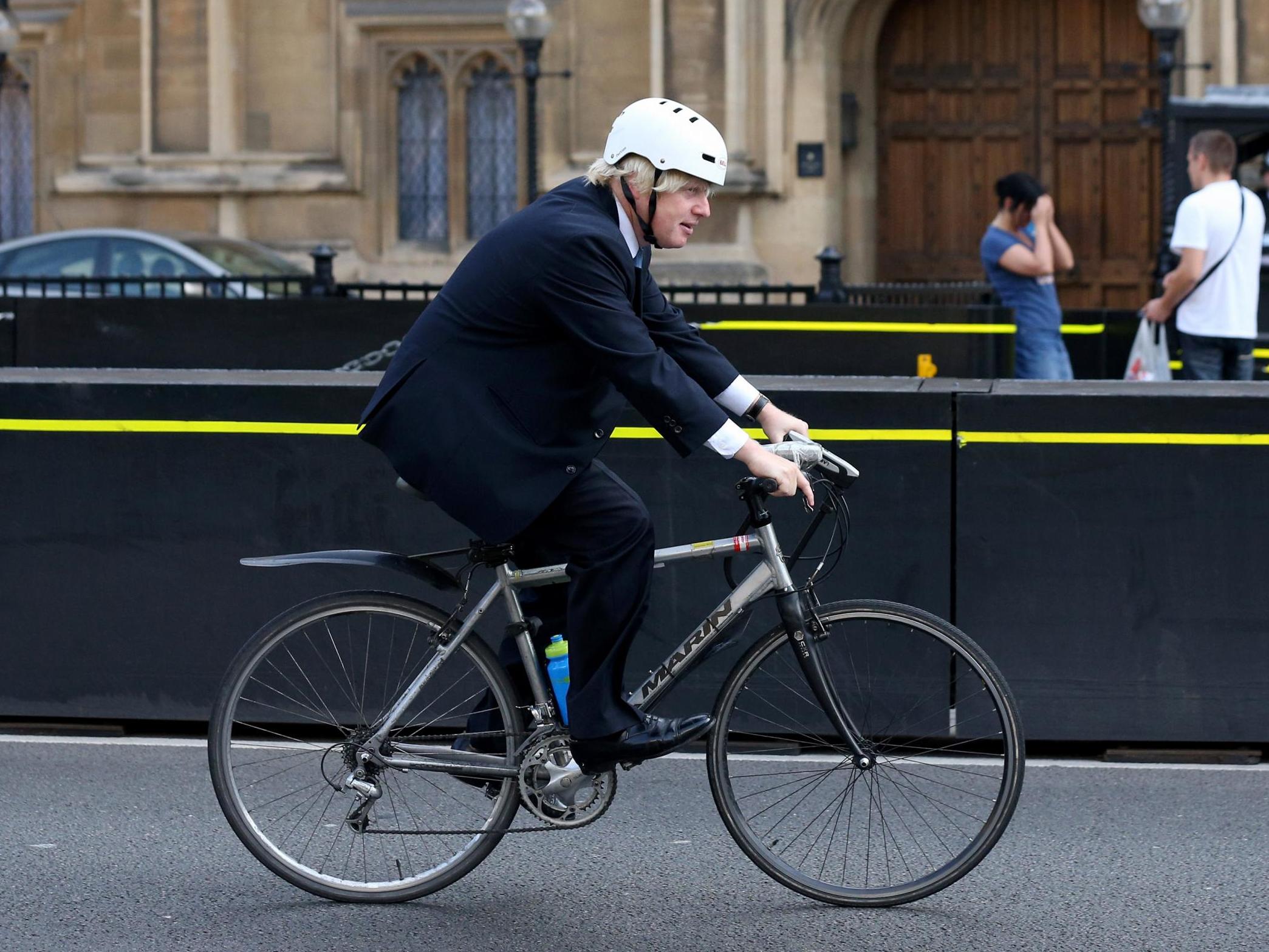Boris Johnson’s cycling plan could be revolutionary if he faces down its opponents
Analysis: The politics behind the schemes is going to be hard for the prime minister, writes Jon Stone


The government unveiled a raft of new cycling policies yesterday: chiefly a £2bn infrastructure fund to build segregated bike lanes in towns and cities across the country, a major update to the design standards councils have to follow and changes to the Highway Code. The main message is that from now on, cycling infrastructure has to be more than a bit of paint.
In content it’s what most cycling campaigners have been calling for for a decade or more, and it’s certainly the most ambitious cycle infrastructure plan announced by any British government.
But will it happen? The amount of money pledged is not huge, and still pales in comparison to the road budget. But £2bn is a reasonable sum, cycle schemes are surprisingly cheap, and the pot of cash, if spent wisely, will pay for somewhere between 500km and 1,000km of segregated cycle lanes, based on the costs of past schemes.
The design standards for councils also mean that changes won’t necessarily have to be solely from “cycle” schemes paid for from the earmarked funds – they encourage councils to build proper infrastructure for cycling whenever they do a road scheme. For this to be truly revolutionary, investment will have to sustained over a long period.
Anyone who’s been watching the reaction to emergency coronavirus cycle lanes installed in recent months will know that these schemes are not uncontroversial and make a small and loud minority of people very angry. Some motorists strongly dislike reallocating space to pedestrians and cyclists – they want the run of the roads. Expect to hear complaints about “capacity” and pictures of every traffic jam anyone’s ever sat in posted on social media and blamed on new lanes.
The odd thing is that most of the opposition to these schemes will almost certainly come from Mr Johnson’s allies on the political right wing. I have already seen a Tory supporter claim on social media that drug users will get free bikes from the government and sell them for cash. Another free-market think tanker said there were enough cycle lanes already and that they “waste valuable road space”. The reaction from left-of-centre types on social media has been more one of scepticism about whether this will actually happen. But the opposition is going to be wild from some quarters, even if polls show that most people support such new infrastructure in principle.
Boris Johnson does have a history of delivering poorly thought-out projects: the Thames cable car, the Boris Bus, and the West Ham stadium all come to mind. But on cycling his record is rather better. As mayor of London, with former journalist Andrew Gilligan as his cycling commissioner, he built the capital’s first real cross-town segregated cycle lanes that revolutionised getting around the city on a bike (after a few false starts and an intense public campaign in response to a spate of deaths).
Gilligan, now a special adviser in Downing Street and largely the driving force behind these policies, has won political battles to get things built before: getting the lanes through in London was no mean feat, with opposition even within Transport for London, which resented having to cater to a new mode of transport.
He’s unlikely to be naive about the challenges this time: the country is not London, where schemes were politically difficult to build despite rock-bottom car use in central London (just 2 per cent of journeys). Councils may also simply not be bothered and ignore the government. Those that are bothered may quickly back down in the face of angry residents concerned about that ever-sacred political touchstone, car parking. Councillors say it is second only to bin collections in its ability to raise tempers and generate angry emails.
The government’s announcement is a huge step forward and has the potential to be the start of the most significant change in Britain’s roads since the introduction of the motorway network. But there will be a lot of political battles to be fought before that happens.
Join our commenting forum
Join thought-provoking conversations, follow other Independent readers and see their replies
Comments